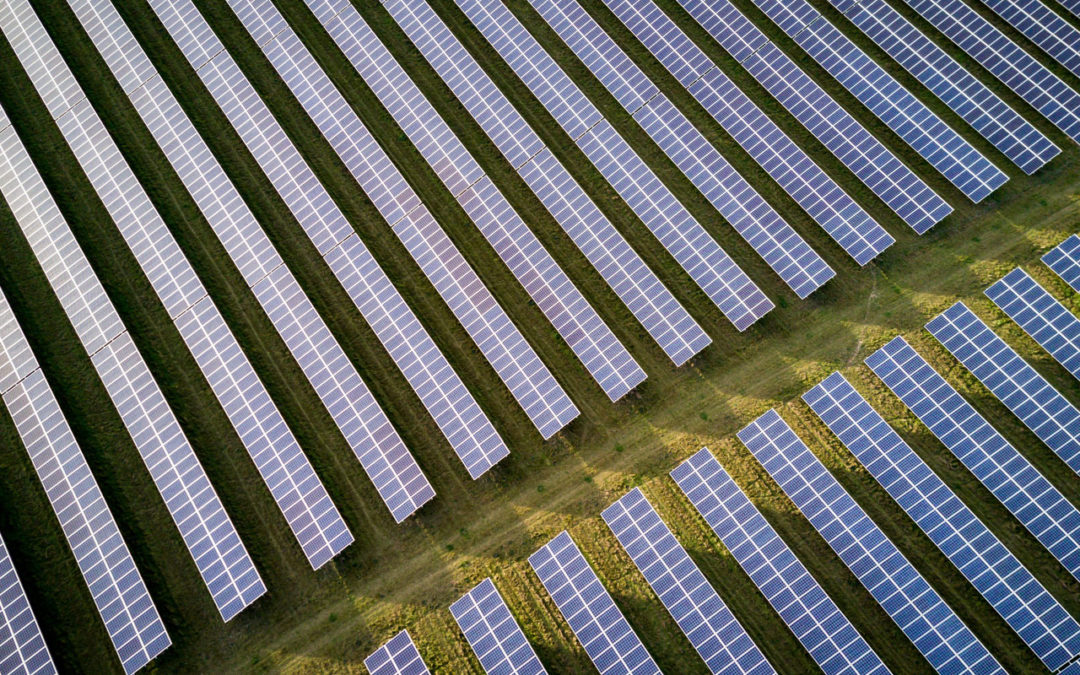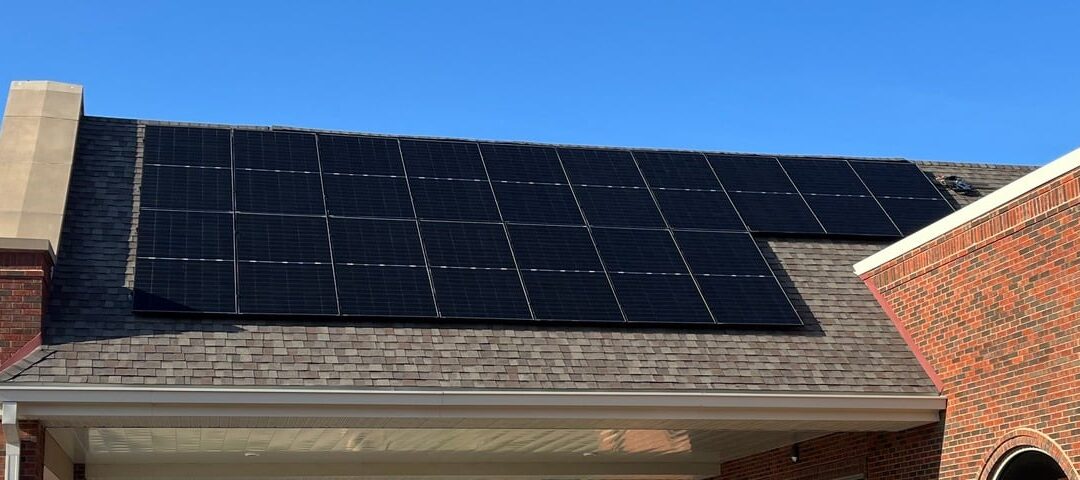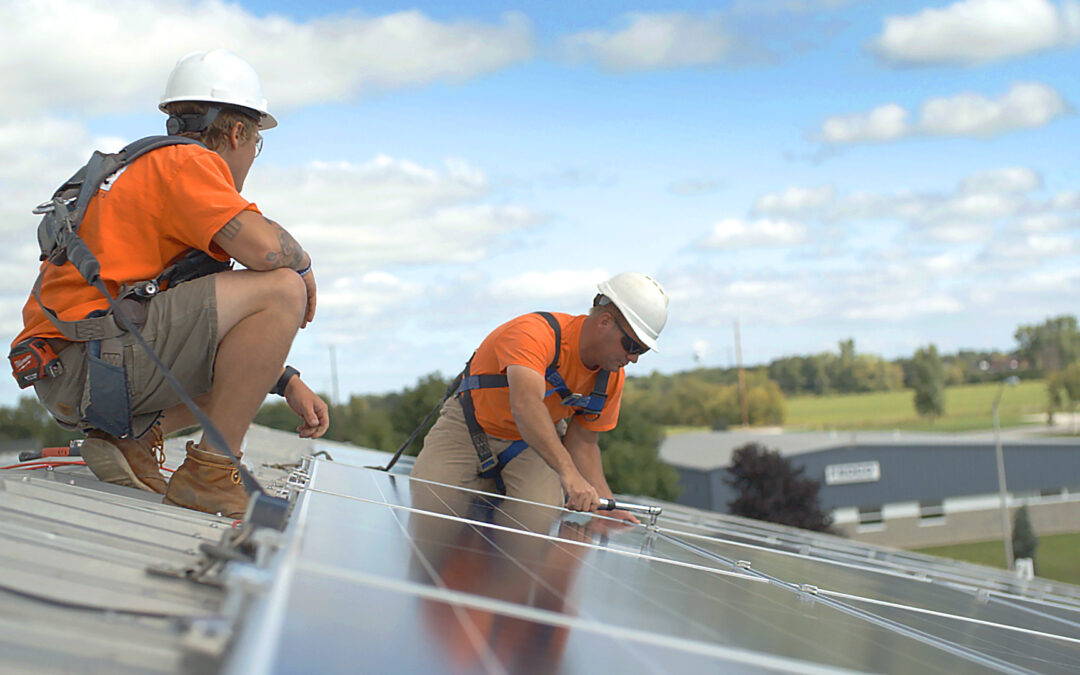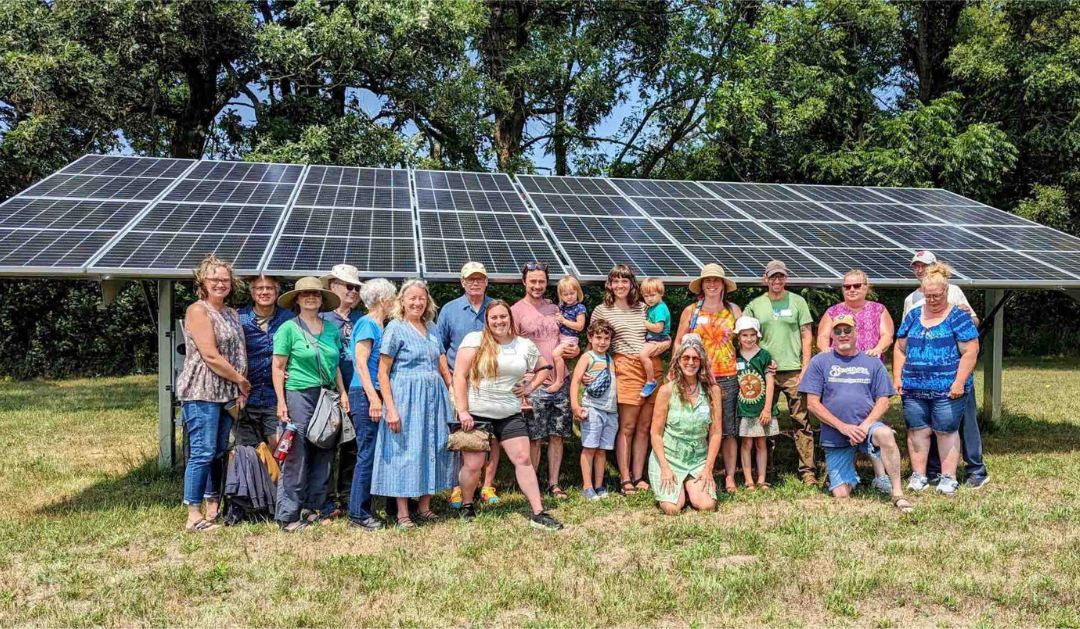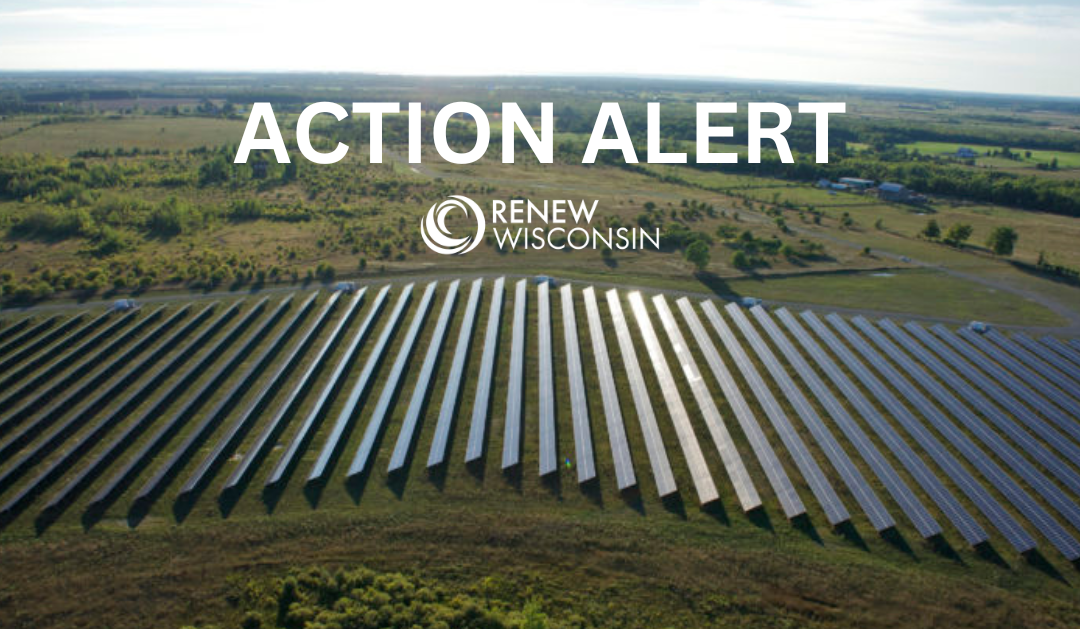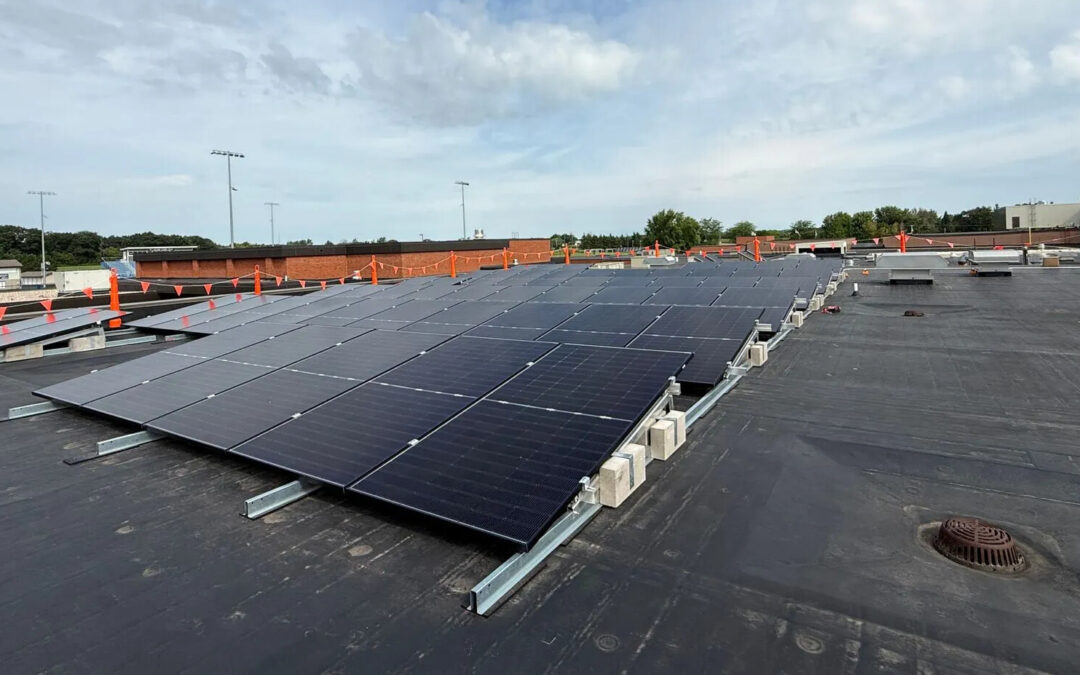Clean Energy Works is RENEW Wisconsin’s initiative to get into the field with our business members and learn directly from those doing the work each day. By shadowing installers, technicians, and staff across the clean energy industry, we gain a deeper understanding of what goes into the work. These experiences directly inform how RENEW supports and advocates for the people and companies driving clean energy forward.
The heart of many Wisconsin communities is the local school district, and that is certainly true in Amherst. When Amherst High School decided to install a rooftop solar array, it was not just about saving money on energy. It was about helping students see renewable energy in action every day. Through the Solar on Schools program, supported by the Couillard Solar Foundation and administered by the Midwest Renewable Energy Association (MREA), the district added a solar system that both powers the school and offers hands-on educational value.
To see how this project came together, I joined Isaiah “Zay” Miller, Commercial Project Manager at Northwind Solar, a worker-owned cooperative based in Amherst, WI.
Meet the Crew
Zay’s path into solar started with curiosity and a willingness to learn. He got his start in 2018, doing mostly residential rooftop installations with almost no construction experience under his belt.
He quickly found his footing at Northwind. Within a few months, he was leading the DC side on commercial projects, later moving into Field Manager and Project Manager roles. Today, he oversees commercial systems and handles much of the design work.
Having worked in nearly every position in the company, Zay brings a deep understanding of what it takes to install systems safely and efficiently.
Before joining Northwind, Zay studied ecological engineering at Oregon State University. His background in water systems gave him a useful way to think about energy. “It’s all systems thinking,” he said. “How water moves, how power moves, it’s just a different medium.”
At around 7 years with Northwind, Zay is now a member-owner of the company. Northwind operates as a worker-owned cooperative, which shapes how the company approaches its projects.
“You have to work here for two years before you can buy in,” Zay said. “The cooperative model means we make decisions together. It’s a shared responsibility.”
About the Technology
The Amherst High School system was designed to match how the building actually uses power. The panels sit above the cafeteria because that section of the roof is closest to the cafeteria’s service connection and where the school’s electricity demand peaks.
Zay explained that the cafeteria experiences the highest energy demand during the day, especially around lunchtime when kitchen equipment, lighting, and ventilation are all running. The system was designed and sized to offset that exact peak. “That’s what makes the system efficient. It’s tied to real usage, not just open roof space,” he said.
On top of the school, the array sits on a weighted mounting system designed to rest securely on the roof without drilling into it.
“Flat roofs are never truly flat,” Zay said. “There’s always a slope for drainage, so we adjusted the racking to make sure everything sat evenly.”
Zay explained that the layout was built with flexibility in mind, allowing the district to expand the system later or connect to another service point if they decide to increase their solar capacity.
Why It Matters
For Zay, the Amherst project shows how clean energy can fit naturally into community spaces. “This work builds community,” he said. “It’s local jobs, local power, and you can see what you’ve built every time you drive by.”
He also emphasizes that success in solar depends on strong trade skills and an eye for detail. Carpentry, measurement, and problem-solving often matter more than electrical training at first. Many of the best installers, he noted, come from farming, construction, or mechanical backgrounds where those instincts are second nature.
Zay sees solar installation as a skilled trade that blends craftsmanship, teamwork, and purpose. Many of the people he works with come from different backgrounds and discover the field by chance, but stay because the work is meaningful. As he put it, “Being able to think ahead and problem-solve is what separates a good installer from a great one.”
Looking Ahead
Zay sees a future where solar projects continue to connect people to both energy and place. He is particularly interested in the potential of agrivoltaics, an approach that allows land to be used for both solar generation and agriculture. By combining the two, solar arrays can produce clean energy while also supporting crop growth and improving soil health. To Zay, this kind of dual-purpose design shows how renewable energy can work in harmony with Wisconsin’s agricultural roots rather than compete with them.
He also sees value in bringing policymakers and educators closer to the field. “It’s great when people from the policy side come out here,” he said. “A lot of the challenges we deal with, like permitting delays or utility rules, aren’t visible from an office.”
As Amherst High School’s system begins generating power, it reflects the kind of thoughtful design and craftsmanship that defines Northwind’s approach. For Zay, it is another example of what good planning and teamwork can accomplish.
“At the end of the day, we’re just trying to build good systems and do right by our customers and our team,” he said.
If you are part of this work and would be willing to share your story, I would love to join you for a day. Feel free to reach out to me at ben@renewwisconsin.org.
